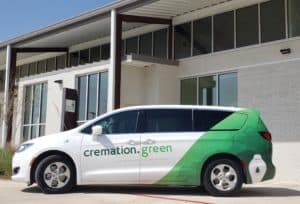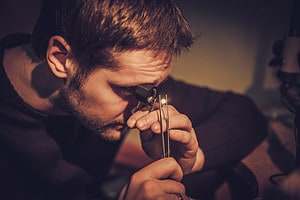Death is a natural part of life, but there are still procedures and processes that must be followed after a person dies. That means a number of people will be involved in the body disposition and funeral services. What exactly each person does may be unclear, and sometimes it can seem like different people do the same thing.
That’s often the case with medical examiners and coroners. Many people mistakenly think the two are interchangeable and essentially do the same job. In actuality, coroners and medical examiners have very different roles in the days and weeks after a person passes away.
Different Jurisdictions Have Different Job Roles
Before breaking down the difference between a medical examiner and a coroner it’s important to point out that job roles vary depending on the jurisdiction. That’s part of the reason why there’s so much confusion about the differences between medical examiners and coroners. Many states don’t even have a statewide coroner or medical examiner system to make the job requirements more consistent.
If you are looking for specific information about the roles of medical examiners and coroners in your area it’s best to contact the county coroner’s office or the county medical examiner’s office.
RELATED READING: Who is the Travis County Medical Examiner?
Key Differences Between Medical Examiners and Coroners
Now that we’ve established that the job roles can overlap depending on location, lets dig into the major differences between coroners and medical examiners. The differences will make it clear why more jurisdictions are phasing out coroners in favor of medical examiners.
Coroners Aren’t Always Doctors Like Medical Examiners
Did you know that a coroner doesn’t necessarily need to be a doctor? Coroners can do the job without without ever attending medical school. That isn’t the case with a medical examiner. Being a licensed physician is a requirement for that job.
Medical Examiners Usually Perform Autopsies, Coroners Do Field Work
Coroners are involved with identifying a body, notifying the next of kin and making sure the deceased’s belongings are returned. In the majority of jurisdictions if the death is questionable in any way a medical examiner is called upon to perform an autopsy, not the coroner. Autopsies are performed so that the medical examiner can determine the manner and cause of death, as well as the circumstances in some cases. Making those determinations requires specialized death investigation training. Medical examiners are also tasked with ordering and interpretting lab reports, which is something many coroners don’t have the knowledge or training to do.
Coroners carry out tasks that help the medical examiner do their job. For example, they may obtain medical records, conduct interviews or visit the crime scene to gather evidence. In this regard, the coroner can help determine the manner of death and the related circumstances while the medical examiner determines the cause of death.
Medical Examiners Are Actually Investigators Helping With Cases
Autopsies aren’t just a medical procedure. Most of the time if an autopsy is ordered it’s part of a death investigation. The medical examiner is part of the investigative team. So much so, most medical examiners have training in forensics and pathology. In fact, a good number of medical examiners are also pathologists. At the very least medical examiners must be certified by the American Board of Pathology with a specialty in forensic pathology.
Coroners Are Elected and Medical Examiners Are Appointed
Coroners don’t have to have medical training, but they do need to have the confidence of community members. Typically, coroners are elected whereas medical examiners are appointed. In some parts of the country, the Sherrif (another elected official) serves as the coroner.
Need more clarification about what happens before cremation? Give the Green Cremation Texas team a call, text or email. We’re available 24 hours a day to answer your questions and help you make funeral arrangements.





